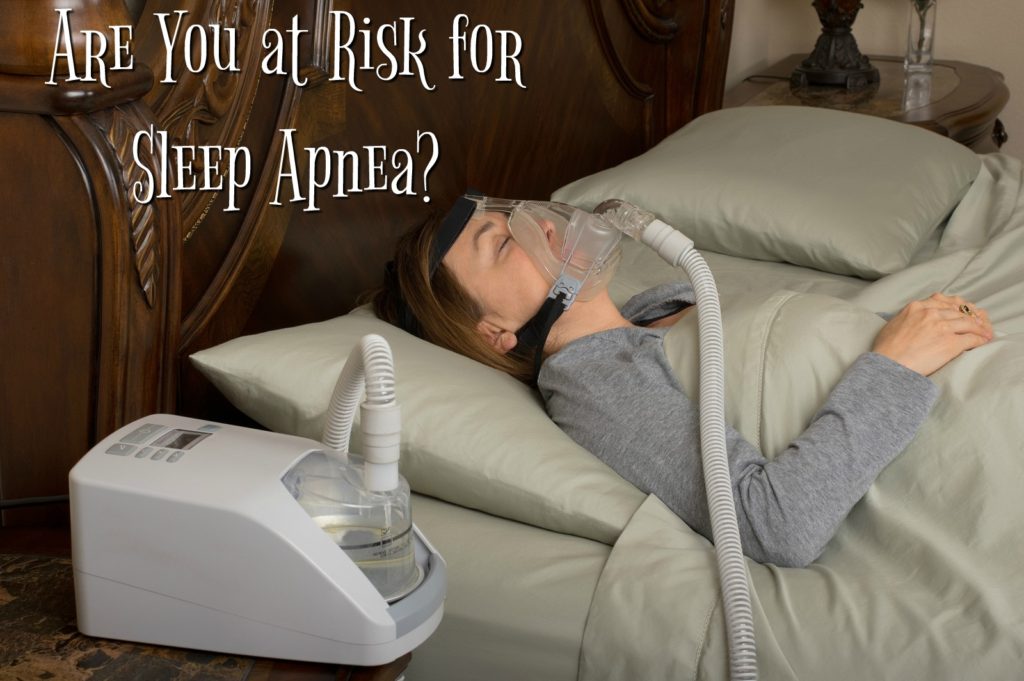Do you find that you don’t feel rested, regardless of the amount of sleep you’ve gotten? Are you having problems with your memory and/or mood? If so, you may be suffering from a condition known as obstructive sleep apnea. Obstructive sleep apnea is a disorder that occurs when you struggle to breathe freely throughout the night leading to fragmented sleep.

Sleep apnea affects around 18 million Americans. It can affect anyone- men, women, and even children. However, there are certain characteristics that can put you at a higher risk for the disorder, including the following ten.
- Being overweight. Not everyone who is obese or overweight will have sleep apnea. However, carrying around the extra pounds will significantly increase your risk. According to the Mayo Clinic, people who are obese are four times more likely to have sleep apnea than those who are not. Why? The excess weight puts extra pressure on your respiratory system, making breathing at night more difficult.
- Thick neck. Usually, people with a thicker neck have narrowed airways, and the extra weight of a larger neck pushes on the airway when you sleep. What’s considered thick? For men, anything 17 inches or more in circumference is considered a thick neck. For women, it is 15 inches or more.
- Family history. If you have family members who suffer from the disorder, then you have an increased risk of developing the disorder.
- Narrow airway. Sleep apnea occurs when you have trouble breathing at night, so it makes sense that if you have a naturally smaller airway that you would have an increased risk for the disorder. Or, in children especially, enlarged tonsils and/or adenoids may block the airway, resulting in sleep apnea. Other causes for a narrowed airway include allergies or a large tongue.
- Alcohol and substance abuse. Alcohol and substances like sedatives and tranquilizers relax your throat muscles, narrowing your airway and making it difficult to breathe properly at night.
- Smoking. Smokers are three times more likely to develop sleep apnea because smoking irritates and inflames your upper airway causing it to narrow. The risk drops when you quit smoking.
- Snoring. Roughly half of all people who snore loudly have sleep apnea. Snoring is usually caused by not breathing freely. Snoring can become so bad when you have sleep apnea that it sounds like you are gasping for air or choking.
- Nasal congestion. Whether it be from allergies or an anatomical problem, if you have trouble when breathing through your nose, you are more likely to develop sleep apnea.
- Age. Probably due to the relaxing of muscles, sleep apnea occurs significantly more often in the elderly.
- Being male. For unknown reasons, men are twice as likely as women to develop sleep apnea. However, a woman’s risk increased if they are overweight or have gone through menopause.
Obviously, the size of your neck and airway are out of your control, and you cannot change them. However, some of these factors can be avoided -and your risks reduced- with lifestyle changes such as managing your weight, and reducing or eliminating tobacco and alcohol intake.
If you feel that you may have sleep apnea, don’t hesitate to see a doctor or specialist for help and guidance. Sleep apnea is a serious disorder that can be life-threatening, so you should have it treated right away. Call 480-830-3900 to schedule a consultation at one of our five convenient Valley Sleep Center locations today so you can protect your health and get more sleep to feel more energized and rested.

